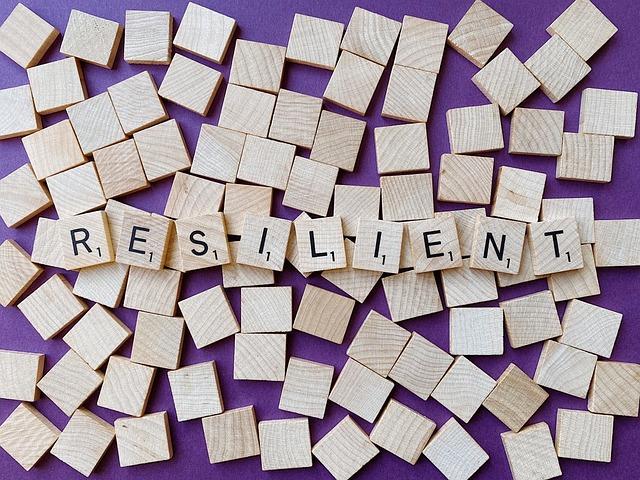In the heart of South Asia lies Pakistan, a nation rich in history and culture, yet faced with a myriad of challenges that span economic, social, and environmental spheres. As the world evolves and faces unprecedented changes, so too must the frameworks that govern its societies. “Transforming Pakistan: Innovations in Public Policy for Progress” delves into the transformative ideas and strategies emerging from this vibrant country. This article aims to highlight the groundbreaking initiatives and visionary policies that are reshaping governance, enhancing civic engagement, and promoting sustainable development. By examining case studies and innovative practices, we invite readers on a journey through Pakistan’s policy landscape—one where creativity and pragmatism intersect to pave the way for a brighter future. Join us as we explore the dynamic interplay of reform and resilience that defines Pakistan’s path toward progress.
Innovative Strategies in Education Reform for Sustainable Development
Education reform is pivotal in addressing the multifaceted challenges of sustainable development in Pakistan. Embracing innovative teaching methodologies such as project-based learning and experiential education can significantly enhance student engagement. These approaches encourage critical thinking and problem-solving skills, allowing learners to apply their knowledge in real-world contexts. Furthermore, integrating digital literacy into the curriculum equips students with essential skills for the 21st century, ensuring they are not only consumers of technology but also creators of solutions. Establishing partnerships with tech companies can provide access to resources and training, fostering a culture of continuous learning.
In the realm of policy-making, a shift towards community-driven initiatives can yield impactful results. Local governments and communities should be empowered to tailor educational programs that reflect their unique needs and cultural contexts. This grassroots approach promotes ownership and accountability, leading to increased participation and investment in education. Key strategies may include:
- Decentralization of educational governance to enhance local decision-making.
- Incentivizing private sector engagement in educational reform through public-private partnerships.
- Enhancing teacher training programs to include sustainable development goals in the curriculum.
- Utilizing alternative assessment methods that prioritize student growth over standardized testing.

Harnessing Technology to Enhance Governance and Public Service Delivery
In an era where technological innovation meets civic responsibility, the potential to redefine governance and public service delivery in Pakistan has never been more promising. Emerging technologies such as artificial intelligence, big data analytics, and blockchain offer transformative solutions aimed at enhancing efficiency, transparency, and accountability in government operations. Implementing smart platforms for citizen engagement can streamline processes, allowing citizens to access services easily—from health care and education to legal assistance—through user-friendly mobile applications and online portals. This modern approach not only fosters trust but also encourages active participation from the public, bridging the gap between citizens and their government.
Moreover, local governments can benefit from leveraging data-driven decision-making, which empowers them to identify community needs through detailed analytics. By utilizing geospatial technology, authorities can optimize resource allocation, ensuring that infrastructure and services are distributed equitably across regions. The incorporation of feedback mechanisms, such as real-time surveys and social media channels, cultivates a responsive governance framework that prioritizes citizen input, thereby enhancing the overall quality of public services. As Pakistan embraces these innovations, the synergy between technology and public policy will undoubtedly pave the way for sustainable development and improved living standards for all.

Empowering Local Communities through Decentralized Policy Frameworks
The shift towards decentralized policy frameworks in Pakistan is not merely a governance reform; it’s a profound strategy aimed at revitalizing local communities. By empowering local decision-makers, citizens are given a voice in shaping policies that directly affect their lives. This approach cultivates a sense of ownership among community members, fostering grassroots participation and ensuring that public resources are allocated more effectively. Local councils, community-based organizations, and active citizen participation play a pivotal role in this transformation, enabling policy adaptations that reflect the unique needs and priorities of each region.
Further enhancing this model are innovative technological tools that facilitate the sharing of best practices and real-time feedback loops between local governments and residents. The integration of digital platforms allows for transparency and accountability, creating a vibrant ecosystem where local voices matter. Some key elements of this framework include:
- Collaboration with NGOs: Partnering with non-governmental organizations to assess local needs.
- Data-Driven Decision Making: Utilizing technology to gather and analyze community data.
- Flexible Policy Implementation: Allowing local amendments to broader national policies based on regional demand.
To demonstrate the impact of decentralized approaches, consider the following table highlighting successful initiatives implemented in various provinces:
| Province | Initiative | Outcome |
|---|---|---|
| Punjab | Community Health Engagement | 30% increase in local health service utilization. |
| Sindh | School Governance Model | 20% rise in student enrollment and retention. |
| Khyber Pakhtunkhwa | Local Agriculture Programs | 15% boost in crop yields. |

Fostering Economic Resilience with Inclusive and Green Growth Initiatives
The path towards a sustainable economy in Pakistan hinges on the integration of inclusive growth strategies that uplift marginalized communities while preserving the environment. By prioritizing green technologies and renewable energy, the nation can stimulate job creation and ensure equitable access to resources. This can be achieved through a tripartite approach that includes:
- Community Engagement: Involving local populations in decision-making processes to ensure that their needs and perspectives drive economic initiatives.
- Sustainable Practices: Implementing eco-friendly agricultural methods and waste management systems to promote environmental health.
- Public-Private Partnerships: Collaborating with businesses to innovate and finance sustainable projects that align with national development goals.
Furthermore, investing in education and vocational training is crucial to equip the workforce with the necessary skills for a green economy. Tailored programs can cater to the specific needs of different regions, fostering innovation while addressing local challenges. A potential roadmap might include a collaboration framework as illustrated below:
| Stakeholder | Role | Expected Outcome |
|---|---|---|
| Government | Policy formulation | Inclusive frameworks promoting green initiatives |
| NGOs | Community outreach | Increased participation in sustainable practices |
| Entrepreneurs | Innovative solutions | Job creation through green startups |
Key Takeaways
In the heart of a nation on the cusp of transformation, innovation in public policy emerges as a beacon of hope, illuminating the path toward a brighter future for Pakistan. As we stand at this pivotal juncture, the collective efforts of thought leaders, policymakers, and citizens form a tapestry of progress woven with the threads of creativity and resilience. By embracing innovative approaches and fostering collaboration, Pakistan not only navigates the complexities of modern governance but also paves the way for sustainable development and enriched livelihoods.
As we reflect on the potential for change, it is essential to remember that the journey is just as important as the destination. Every initiative, every policy reform, and every community engagement signals a step toward revitalizing the nation. The story of Pakistan is one of adaptability and endurance, where challenges become opportunities and aspirations are transformed into realities.
As we look ahead, let us carry forward the spirit of innovation, nurturing a culture of progress that empowers individuals and communities alike. The transformation of Pakistan is not merely an end goal; it is a dynamic process that calls on each of us to play our part. Together, we can contribute to a narrative that celebrates growth, embraces change, and champions the ideals of a prosperous nation. The future is bright; let us seize the moment and shape it for generations to come.



